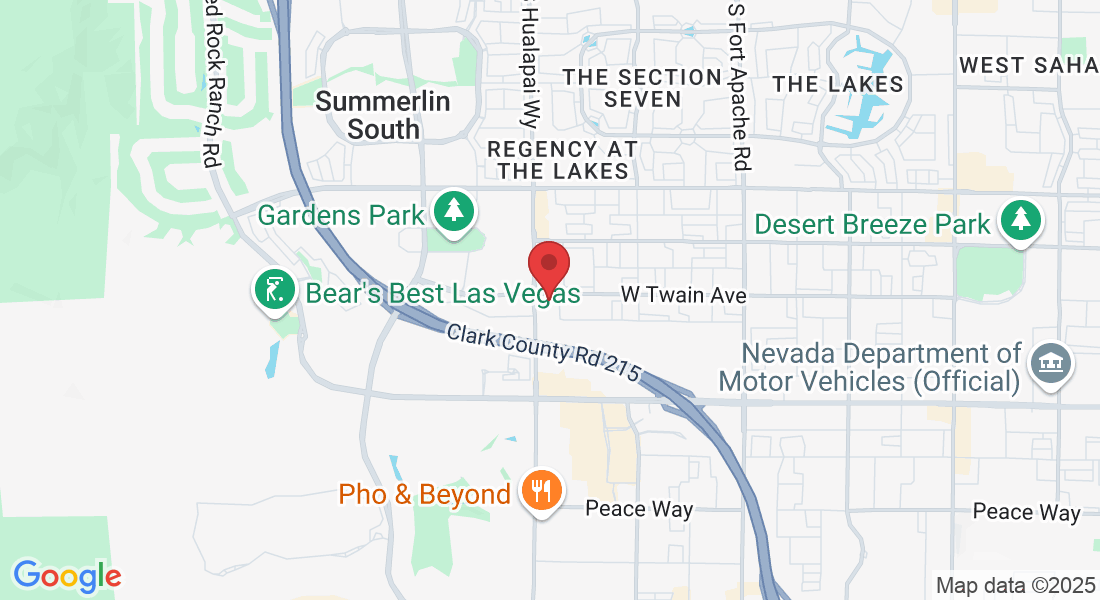
Essential Guide: Updating Beneficiary Designations for Estate Planning Success
Have You Checked Your Beneficiary Designations Lately?
You regularly check the balances of your retirement, bank, and investment accounts. But when was the last time you checked the beneficiary designations on these accounts (and really, all the other accounts that allow you to name a beneficiary)?
It may have been years since you first opened an individual retirement account, bought a life insurance policy, or started putting money into a health savings account. At the time, you named someone—most likely your spouse, if you were married, or another loved one if you were single—who will inherit the money when you pass away.
However, you might have since married, divorced, or remarried without updating your beneficiaries. Or maybe another event, such as a birth or death in the family, has altered your estate planning strategy.
Beneficiary designations are a crucial part of an estate plan and a way to avoid probate. But they supersede instructions in a will or trust and should be regularly reviewed to ensure that they align with your legacy goals.
Don't let outdated beneficiary designations derail your estate plan. Let CPA Attorney LLC help you review and update your designations to align with your current wishes. Contact us at 702-852-2577, email [email protected], or schedule online via Calendly for expert guidance in securing your legacy.
Accounts That Have Beneficiary Designations
Beneficiary designations allow individuals to specify who will receive the funds or accounts upon their death, bypassing probate and allowing these items to pass more quickly to the people or entities named as beneficiaries.
Many types of accounts and financial instruments such as the following allow for beneficiary designations (including payable-on-death or transfer-on-death account designations):
retirement plans, such as a 401(k), 403(b), individual retirement account (IRA), Roth IRA, or pension plans
life insurance policies
annuities
checking and savings accounts
certificates of deposit (CDs)
health savings accounts (HSAs)
529 college savings plans
employer-sponsored benefits (e.g., group life insurance and employee stock plans)
brokerage accounts
mutual funds
US savings bonds
Some states also allow real estate to pass to a beneficiary using a transfer-on-death deed, a beneficiary deed, or a Ladybird deed, also known as an enhanced life estate deed.
How a Beneficiary Designation Works
Beneficiary designations take precedence for distribution over other documents in an estate plan. The individual or entity you name as an account beneficiary will automatically receive the money or account, usually without it passing through the court-supervised probate process.
A beneficiary can be any of the following:
a person, such as a spouse, child, partner, family member, or friend
a trust
a charity
your estate
It is also possible to name multiple parties as beneficiaries of the same account, allowing you to divide the money or account among them. For example, you could have half the money in your investment account pass to your spouse and split the other half between your two children.
Federal law, your state, or the account administrator may require that your spouse be listed as a primary beneficiary and receive a minimum amount before you can list other beneficiaries, unless the spouse waives their rights.
If you name your estate as a beneficiary, the money or account could be subject to probate.
Naming Primary and Contingent Beneficiaries
In addition to naming a primary beneficiary (the person first in line to inherit the money or account), most policies let you name at least one contingent (backup or secondary) beneficiary.
A secondary beneficiary receives the money or account if the primary beneficiary is unable or unwilling to accept it (e.g., they predecease the account holder or die at the same time). While primary and contingent beneficiaries provide some probate avoidance security, if there is no primary beneficiary to receive the money or account and no listed contingent beneficiary, the money or account could be subject to probate and distributed according to applicable state law.
With your estate planning attorney’s guidance, consider naming your trust, if your estate plan includes one, as primary or contingent beneficiary to help avoid the scenario where both your primary and contingent beneficiaries predecease you or are otherwise unable to take the funds.
Why You Need to Review Beneficiary Designations Regularly
A beneficiary designation supersedes any instructions in a will or trust about how to distribute money in an account or policy. If your will states that your money and property should go to one person but your retirement account designates someone else as the beneficiary, the beneficiary designation on the account takes precedence.
Many people make the mistake of assuming the opposite: that their will or trust overrides beneficiary designation forms. It is also problematic when an account owner submits a beneficiary form to a plan custodian or administrator but never confirms that the designation was processed. There could even be instances where the beneficiary form was left blank, either accidentally or with the intent to fill it out later.
A beneficiary form that is not up to date can result in assets getting tied up in probate or not passing to the correct beneficiaries. Not updating a beneficiary form could have unintended consequences, such as leaving money or the account to a loved one who is now incapable of handling them or to someone you no longer want receiving the funds.
An estate plan should be regularly updated to account for life changes. This includes examining beneficiary forms when the following types of major life events occur:
divorce
marriage
birth or adoption of a child or grandchild
loss of a spouse, child, or other beneficiary
the end of a relationship
closure of an account and moving the assets to a new account
a plan administrator being bought by or merging with another financial institution
an employer changing plan administrators for the benefits it provides
changes in the law that affect how money and accounts can be transferred at death
While the events listed above can warrant an immediate change in beneficiary designations, it is prudent to check designations every three to five years even when you think nothing has changed.
Changing your mind about your overall estate plan is another time to consider switching beneficiaries. For example, your original intent may have been to divide your money and property evenly among your children, but you have since decided that one child needs more money than their siblings. You may need to update your retirement account to make that child the sole account beneficiary.
How to Change a Beneficiary Designation
Updating beneficiaries is straightforward, but the actual process can depend on the type of account:
Many accounts can be checked and changed online.
Some accounts require filling out paperwork.
In certain states, a spouse’s written consent may be required to name someone else as primary beneficiary.
A beneficiary change could require a sign-off from a plan administrator.
When naming a beneficiary, be as detailed as possible. Most designation forms ask for a person’s full legal name and their relationship to you. You may also need to provide details such as the beneficiary’s contact information, date of birth, and Social Security number. Part of the change process should also include requesting and saving beneficiary change confirmations from the account administrator. This is the only way to ensure that the change was successfully made.
What Can Happen When You Do Not Update Beneficiary Designations
If you fail to name a beneficiary or do not name a contingent beneficiary in case something happens to the primary beneficiary, the money or account could be subject to probate upon your death.
The probate process can add costs and delays to settling an estate. Probated accounts and property must be reviewed by the court and distributed in accordance with a will instead of a beneficiary designation. If you do not have an existing will, the money or account would be subject to state intestacy laws, which determine who has the right to receive your money and property at your death. These laws typically give preference to a person’s spouse and children, but you may want somebody else to receive your money or accounts.
Simple Form, Complex Estate Planning Considerations
Beneficiary designations show how even small estate planning details can have a big impact. While the form to name a beneficiary on an account is typically easy to fill out, naming—or failing to change—a beneficiary can have a major effect on your estate plan and loved ones.
A beneficiary designation cannot be changed after you are gone. To ensure that your account money and property go where you want and how you want, talk to an estate planning attorney to put a plan in place.
Don't let outdated beneficiary designations compromise your carefully crafted estate plan. At CPA Attorney, we understand the intricate details of estate planning and can help ensure your beneficiary designations align with your overall financial strategy and legacy goals. Our team of experienced professionals is ready to review your current designations, guide you through necessary updates, and provide comprehensive estate planning services tailored to your unique needs. Take the first step towards securing your legacy today – schedule a consultation with CPA Attorney by visiting Calendly or calling us at 702-852-2577 or email us at [email protected] Let us help you protect what matters most and ensure your wishes are carried out exactly as you intend.
© Copyright 2025 – CPA Attorney


